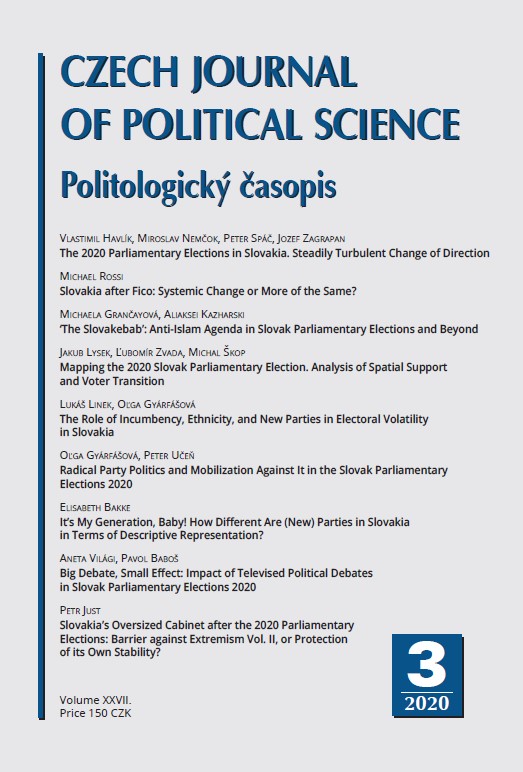Slovakia after Fico: Systemic Change or More of the Same?
Slovakia after Fico: Systemic Change or More of the Same?
Author(s): Michael RossiSubject(s): Politics / Political Sciences, Social Sciences
Published by: Masarykova univerzita nakladatelství
Keywords: Slovakia; elections; OĽaNO; democracy; Robert Fico; Igor Matovič
Summary/Abstract: The February 2020 parliamentary election marked a significant moment for Slovakia after years of public dissatisfaction with endemic corruption, political mismanagement, and unaccountable leadership associated with the political hegemony of Smer-SD and its leader Robert Fico. The resounding victory of the Ordinary People and Independent Personalities Party offers the country an opportunity to not only address the problems with Slovakia’s political culture of corruption and oligarchism, but also to strengthen democracy, the rule of law, and good governance. However, contrary to international expectations, the electoral demographic that chose Zuzana Čaputová as Slovakia’s new president in 2019 failed to secure enough votes to place any liberal democratic party in parliament, leaving the current legislature dominated by a collection of conservative, populist, and Eurosceptic parties. While seen by some analysts as a setback, the prognosis for Slovakian politics appears rather optimistic. This article assesses the outcomes of the February election and notes a continued pattern of political entrepreneurialism where the most successful parties tend to be those that promote broad-based issues of policy instead of any particular ideology, conservative or liberal. Slovakian politics might have been significantly influenced by a number of nationalist and conservative parties over the past three decades, but actual policy has been directed by opportunists instead of ideologues. This has enabled these larger entrepreneurial parties to adopt conservative elements into their programmes for electoral advantage instead of from actual conviction. This leaves open the possibility that entrepreneurial parties might gravitate towards more liberal democratic and even progressive policies should advantageous opportunities arise in the future. Given the current efforts by Slovakian political actors to break with past patterns of oligarchism, coupled with the discrediting of entrenched political elitism and the visible-yet-manageable threats from Slovakia’s far right, such outcomes are increasingly likely.
Journal: Politologický časopis - Czech Journal of Political Science
- Issue Year: XXVII/2020
- Issue No: 3
- Page Range: 235-258
- Page Count: 23
- Language: English

